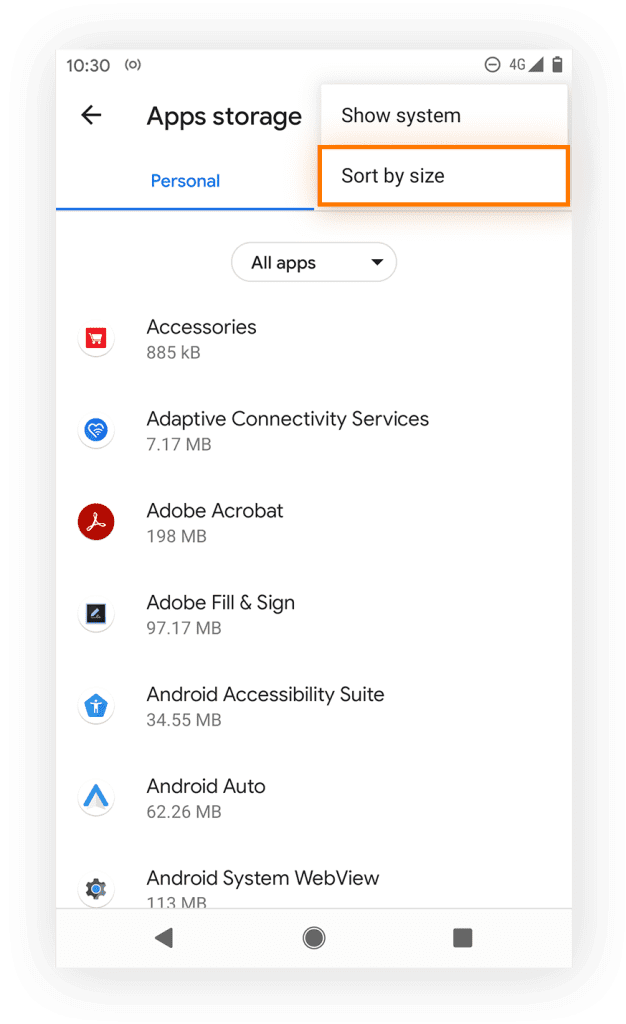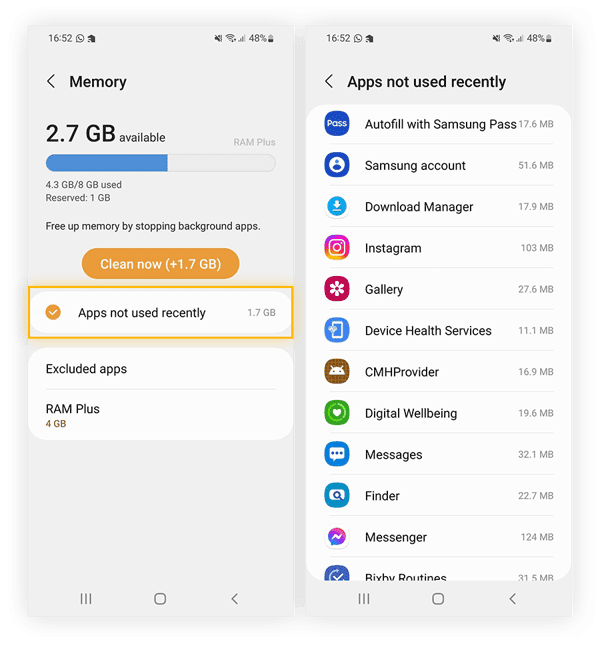Boosting your Android’s performance is essential for a smooth and seamless experience. One of the simplest ways to achieve this is by clearing cache regularly. Cache is temporary data stored by apps and websites to load faster the next time you access them. However, over time, this data accumulates and can slow down your device.
Clearing cache frees up storage space and helps your Android run faster and more efficiently. It also reduces the risk of app crashes and freezes. You can clear cache manually for individual apps or use a cleaning app to clear cache for all apps at once. By making clearing cache a part of your routine maintenance, you can enjoy a faster and more responsive Android experience. So, don’t wait any longer, give your Android the boost it deserves by clearing cache today!. You may need to know : Effortlessly Clear Cache on Android with These Simple Steps
As a tech expert, I know that Android’s performance can decline over time, leaving users frustrated with their devices. One common cause of this issue is cache buildup. In this article, I’ll explain what cache is, how it affects Android’s performance, and why clearing it is essential.
Table of Contents
What is Cache?
Cache refers to temporary files that are stored on your device to help apps and websites load faster. These files include images, scripts, and other data that your device can access quickly without having to download it again. While cache can be useful for improving load times, it can also have a negative impact on your device’s performance.
When cache builds up, it takes up valuable space on your device’s storage, which can slow down the device. Additionally, cached data can become corrupted, which can cause apps to crash or freeze.
Why Clearing Cache is Essential
Clearing cache can have several benefits for your device’s performance. First, it can free up space on your device’s storage, which can help improve its overall speed. Additionally, clearing cache can help prevent app crashes and freezes by removing corrupted data.
To clear cache on Android, go to your device’s settings, select “Storage,” then “Cached data,” and finally, tap “Clear cached data.” You can also clear cache for individual apps by going to “Apps & notifications,” selecting the app, and tapping “Storage & cache,” then “Clear cache.”
When to Clear Cache
It’s a good idea to clear cache periodically to keep your device running smoothly. Signs that it’s time to clear cache include slow performance, app crashes, and low storage space. How often you should clear cache depends on how frequently you use your device and which apps you use the most.
For heavy users, clearing cache once a week or every few days may be necessary to maintain optimal performance. For lighter users, clearing cache once a month may suffice.
Alternative Ways to Boost Performance
In addition to clearing cache, there are other ways to boost your Android’s performance. Some tips include:
– Uninstalling unused apps to free up storage space
– Turning off animations and visual effects to reduce strain on your device’s processor
– Using a task manager app to close background apps and free up RAM
There are also several apps available in the Google Play Store that can help optimize your device’s performance. Some popular options include Clean Master, DU Speed Booster, and CCleaner.
Final Thoughts
Clearing cache is a simple yet effective way to boost your Android’s performance and prevent app crashes and freezes. By periodically clearing cache and following other performance-boosting tips, you can ensure that your device runs smoothly and efficiently. So, take a few minutes to clear cache today and enjoy a faster, more responsive device.
Frequently Asked Questions
Cache is a temporary storage that helps your Android device load apps and websites faster. However, over time, this cache can accumulate and cause performance issues. Clearing cache frees up space and allows your device to function more efficiently. It’s like giving your device a fresh start!
How does clearing cache improve the performance of my Android device?
Clearing cache can improve your device’s performance in several ways:
– Faster app loading times: By clearing cache, apps will load faster as they no longer have to sift through unnecessary data.
– More storage space: Clearing cache frees up storage space, allowing you to store more files and apps on your device.
– Improved battery life: A device that’s not bogged down by excessive cache data will use less power and run more efficiently.
Are there any risks involved with clearing the cache on my Android device?
Clearing cache is generally safe and won’t harm your device. However, there are a few things to keep in mind:
– You may lose saved data: Clearing cache will erase temporary data, such as login information or preferences, so be prepared to re-enter this information.
– Some apps may function differently: Clearing cache may affect how some apps function, so be sure to check for any updates after clearing cache.
Conclusion
Thanks for visits imagerocket.net for taking the time to learn about the importance of clearing cache on your Android device. By removing unnecessary data and freeing up space, you can give your phone a much-needed performance boost. From faster app loading times to smoother overall performance, the benefits of clearing cache are numerous.
But it’s not just about the immediate gains. Regularly clearing cache can also help prevent issues like app crashes and freezing, as well as prolong the life of your device by reducing wear and tear on its components.
So if you haven’t already, make clearing cache a regular part of your device maintenance routine. Your Android will thank you for it!



